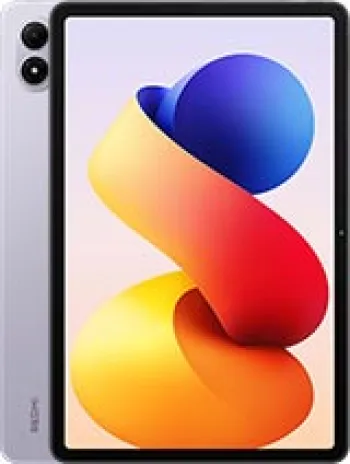
Overview and Introduction
The Xiaomi Mi 9 Explorer is an unambiguous statement of technological prowess from Xiaomi. Released in June 2019, this device was introduced as a high-performance, feature-rich smartphone that catches the eye with its transparent back design, among other remarkable specifications. The device's cutting-edge features include an impressive combination of hardware and software that makes it a compelling option among flagship smartphones of its time.
Design and Build Quality
The Mi 9 Explorer boasts an eye-catching design. The transparent back not only gives it a unique and futuristic appearance but also showcases the intricate engineering of the device. Its dimensions are 157.5 x 74.7 x 7.6 mm, making it sleek and easy to hold. Weighing in at 173 grams, it is light enough for comfortable daily use. The build materials include a Gorilla Glass 6 front, Gorilla Glass 5 back, and an aluminum frame, ensuring durability and a premium feel.
Display
It features a 6.39-inch Super AMOLED display, which supports HDR10. This display size strikes a balance between usability and immersive viewing experience, boasting a screen-to-body ratio of approximately 85.2%. It offers a resolution of 1080 x 2340 pixels with a 19.5:9 aspect ratio, resulting in a pixel density of around 403 ppi, which ensures sharp and vivid visuals. The screen is further protected by Corning Gorilla Glass 6, which enhances its durability against scratches and minor impacts.
Performance
Under the hood, the Mi 9 Explorer is powered by the Qualcomm SM8150 Snapdragon 855 chipset, built on a 7nm process technology. Its CPU configuration includes an octa-core setup, comprising 1x2.84 GHz Kryo 485, 3x2.42 GHz Kryo 485, and 4x1.78 GHz Kryo 485 cores. This configuration ensures optimal performance and power efficiency. The device uses the Adreno 640 GPU, which effectively handles graphics-intensive tasks and gaming with ease.
Memory and Storage
Xiaomi offers the Mi 9 Explorer with two RAM configurations: 8GB or 12GB, paired with a fixed internal storage capacity of 256GB. While the absence of a memory card slot might be seen as a limitation, the availability of substantial built-in storage typically suffices for most users. This setup caters excellently to power users who require significant memory for multitasking and media consumption.
Camera Capabilities
The Mi 9 Explorer is equipped with an advanced triple camera setup, making it a formidable device for photography enthusiasts. The primary wide camera features a 48 MP sensor, with aperture variations of f/1.5 for the 12GB RAM model and f/1.8 for the 8GB RAM model. It includes PDAF and Laser AF enhancement for rapid and accurate focusing. The secondary 12 MP telephoto camera offers 2x optical zoom and a 16 MP ultrawide sensor allows for expansive views.
The camera system supports various features such as Dual-LED flash, HDR, and panorama shots. Its video recording capabilities are no less impressive, offering 4K resolution at 30/60fps and higher frame rate capture modes at 1080p, including 120fps, 240fps, and even a super slow motion option at 960fps.
For selfies, the 20 MP front-facing camera with an f/2.0 aperture ensures excellent image quality, suitable for both photography and high-definition video calls.
Battery and Charging
The Mi 9 Explorer houses a non-removable Li-Po 3300 mAh battery, which, though not the largest in capacity, is efficient enough with its offerings to last a full day of moderate usage. Charging options include a 27W wired solution with Quick Charge 4 and a 20W wireless charging capability, a highly convenient feature that allows for rapid and flexible power replenishment.
Connectivity and Other Features
The Mi 9 Explorer supports multiple connectivity options, including a robust network capability with GSM, CDMA, HSPA, and LTE. Wi-Fi options include dual-band AC connectivity and additional features such as Wi-Fi Direct and DLNA support. Bluetooth 5.0 with aptX HD is available for sophisticated audio transmission.
The device boasts advanced positioning systems including GPS (L1+L5), GLONASS, BDS, GALILEO, and QZSS, ensuring high precision in navigation. Additional connectivity features include NFC and an infrared port, although a radio is not present.
For security, a fingerprint sensor is embedded under the display. Complementing the standard sensors, such as accelerometer and gyro, the device also includes proximity and compass sensors. Audio outputs make use of a loudspeaker but omit the traditional 3.5mm jack, demanding modern solutions or adapters for wired audio.
Software
Launching with Android 9.0 (Pie), the Mi 9 Explorer is layered with MIUI 10, Xiaomi's proprietary user interface, which enhances the stock Android experience with additional features and customization options. This software combo is designed to leverage the hardware's potential, offering a smooth, seamless user experience with regular updates and support for the latest apps and technologies.
Market Position and Pricing
The Mi 9 Explorer was priced at approximately 530 EUR at launch, placing it in the competitive upper mid-range to flagship segment. Its blend of outstanding design, premium materials, a powerful camera system, and robust performance makes it not only a value proposition but also aspirational in nature.
Conclusion
In summary, the Xiaomi Mi 9 Explorer stands out as a device for those who appreciate a blend of aesthetic appeal with high-end technical specifications. While it may not necessarily cater to those needing expandable storage or a headphone jack, it compensates with many modern perks and an enticing design. With its transparent back cover and revealing internal setup, this device is as much a conversation starter as it is a powerful tool in the hands of tech enthusiasts.
Key Features of Xiaomi Mi 9 Explorer
- Supports multiple network technologies: GSM, CDMA, HSPA, LTE
- Constructed with premium materials: Gorilla Glass 6 front, Gorilla Glass 5 back, and 7000 series aluminum frame
- Dual SIM support with dual stand-by feature
- High-quality Super AMOLED display with HDR10 and Gorilla Glass 6 protection
- Powered by Snapdragon 855 (7 nm) chipset with Octa-core CPU and Adreno 640 GPU
- Impressive internal storage options: 256GB with either 8GB RAM or 12GB RAM
- Triple rear camera setup with 48 MP main camera and features like Dual-LED flash, HDR, and panorama
- Capable of recording 4K videos at 30/60fps
- 20 MP wide selfie camera with HDR support
- Comprehensive wireless connectivity options including Wi-Fi, Bluetooth 5.0, NFC, and Infrared port
- USB Type-C 2.0 with OTG support
- Under-display optical fingerprint sensor along with other sensors like accelerometer, gyro, proximity, and compass
- Fast charging: 27W wired (QC4) and 20W wireless charging capabilities
Disadvantages of Xiaomi Mi 9 Explorer
- No memory card slot for expandable storage.
- Lacks a 3.5mm headphone jack.
- No FM radio support.
- Battery capacity is relatively small at 3300 mAh compared to competitors.
- Released with Android 9.0, may not support future major Android updates.



View Also
More Phones
All Rights Reserved +14300 Phones © Mobilawy 2025

























